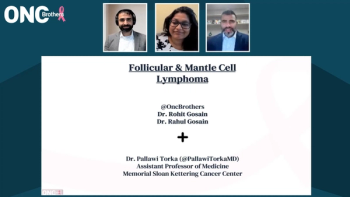
Pallawi Torka, MD, and the Oncology Brothers discuss the therapeutic landscape for patients with relapsed/refractory mantle cell lymphoma.

Your AI-Trained Oncology Knowledge Connection!


Pallawi Torka, MD, and the Oncology Brothers discuss the therapeutic landscape for patients with relapsed/refractory mantle cell lymphoma.
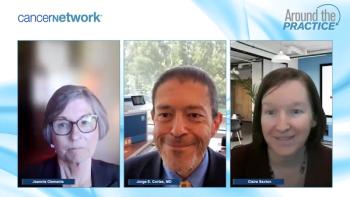
Focusing on the initiation of treatment for newly diagnosed patients with CML, Jorge E. Cortes, MD, details important factors to consider when starting treatment and Claire Saxton discusses strategies that optimize communication when considering treatment options.

Experts on chronic myeloid leukemia discuss how caregivers can collaborate with the health care team and support newly diagnosed patients.

A hematologist-oncologist provides comprehensive insights on the treatment of newly diagnosed patients with mantle cell lymphoma.

The Oncology Brothers and Pallawi Torka, MD, review treatment options for patients with relapsed/refractory follicular lymphoma.

Joannie Clements, a patient advocate, provides insights on helping newly diagnosed patients with CML and their caregivers navigate the complexities of diagnosis, and Claire Saxton outlines resources available for them.

A panel of experts on introduce a discussion on chronic myeloid leukemia (CML) with an overview of the disease, focusing on its subtypes and characteristics.

Pallawi Torka, MD, joins the Oncology Brothers to discuss patient workup and treatment practices in follicular lymphoma, highlighting the PRIMA study and the role of maintenance therapy.
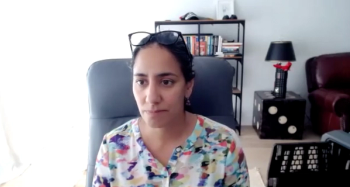
Ritu Salani, MD, discussed investigational endometrial cancer treatment options for patients with varying subtypes of endometrial cancer.

The second interim analysis of the phase 3 RUBY trial found the safety profile was consistent with the first interim analysis and no new deaths due to AEs were observed.
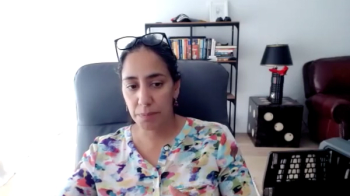
The phase 3 RUBY trial evaluated dostarlimab in combination with carboplatin/paclitaxel in patients with primary advanced or recurrent endometrial cancer.

Accelerated approval of afami-cel may expand access to therapy for patients who are unable to live near certain treatment centers.
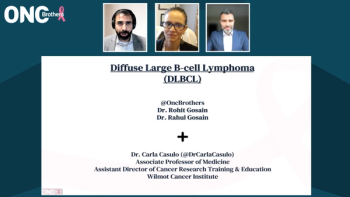
Medical oncologists conclude their discussion with a review of the toxicity profiles of treatments for diffuse large B-cell lymphoma.

Carla Casulo, MD, and the Oncology Brothers review the treatment algorithm for patients with relapsed/refractory DLBCL.

The Oncology Brothers and Carla Casulo, MD, discuss treatment practices for patients with stage III or IV diffuse large B-cell lymphoma.

A hematologist-oncologist joins the Oncology Brothers do discuss first-line treatment practices for patients with stage I or II diffuse large B-cell lymphoma.

Carla Casulo, MD, joins Rahul Gosain, MD, and Rohit Gosain, MD, to provide clinical insights on biopsy practices and discuss the importance of cell of origin in treating diffuse large B-cell lymphoma (DLBCL).

Panelists offer concluding perspectives on the future role of circulating tumor DNA in colorectal cancer management.

Treatment with afami-cel may offer improved quality of life to patients with metastatic synovial sarcoma compared with continuous chemotherapy.
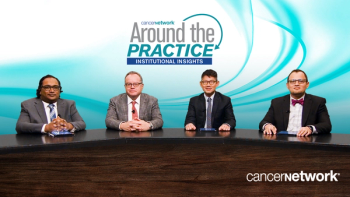
The panel concludes its discussion with key takeaways on the evolving treatment landscape for multiple myeloma.
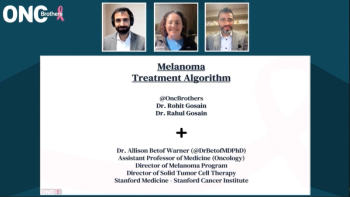
Allison Betof Warner, MD, PhD, and the Oncology Brothers share clinical insights on treatment decisions for patients with metastatic melanoma.

Medical oncologists provide comprehensive insights on neoadjuvant therapy options for patients with melanoma.

Allison Betof Warner, MD, PhD, joins Rahul Gosain, MD, and Rohit Gosain, MD, to discuss treatment practices for patients with stage IIB and beyond melanoma.

Medical professionals analyze gaps in current colorectal cancer patient care, with a focus on minimal residual disease testing.

The panel examines challenges in interpreting circulating tumor DNA results and their impact on clinical decision-making processes.
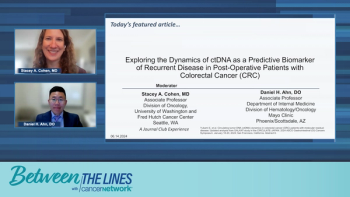
Stacey A. Cohen, MD, and Daniel H. Ahn, DO, share their key takeaways on the clinical utility of ctDNA in the treatment of patients with colorectal cancer.

Experts on colorectal cancer brainstorm ways to optimize clinical research on ctDNA and discuss patient perceptions of ctDNA testing.

Experts on multiple myeloma look to the future treatment landscape and discuss exciting updates presented at the 2024 ASCO Annual Meeting, highlighting belantamab mafodotin and combination therapies.

Samer Al'Hadidi, MD, provides a comprehensive overview of adverse event management practices for patients with multiple myeloma who receive CAR T-cell therapy.
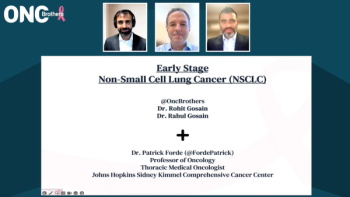
Patrick Forde, MBBCh, and the Oncology Brothers discuss treatment practices for patients with unresectable non–small cell lung cancer.